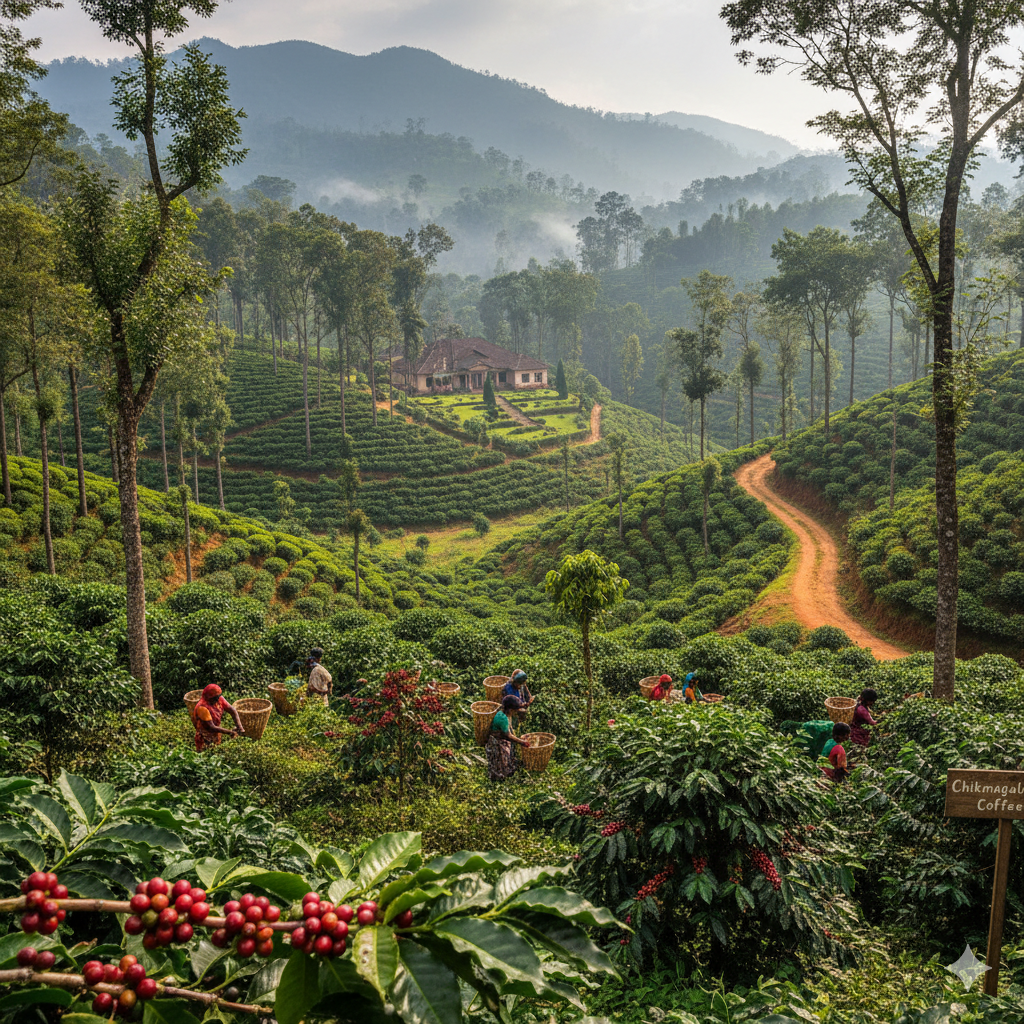Western Ghats – India’s Coffee Spine

The Western Ghats stretch across Karnataka, Kerala and Tamil Nadu, forming India’s primary coffee belt with regions like Coorg, Chikmagalur, Hassan, Wayanad and Nilgiris. These misty highlands provide ideal conditions for Arabica and Robusta, helping Indian coffees move from commodity-grade beans to globally recognised specialty lots.
1. Unique Terroir and Climate
Western Ghats coffee farms sit at high altitudes with heavy monsoon rainfall, cool temperatures and rich lateritic and forest loam soils. This terroir slows cherry ripening, creating beans with deeper sweetness, layered acidity and complex flavor notes that stand out on international cupping tables.
2. Shade-Grown, Biodiversity-Rich Farms
Most Western Ghats plantations are shade-grown under native trees and spice crops like pepper and cardamom, mimicking natural forest canopies. Studies show these coffee landscapes sustain high bird diversity, including many Western Ghats endemics, which strengthens their appeal to eco-conscious global consumers.
3. Specialty Coffee And Traceability
Regions such as Coorg, Chikmagalur, Hassan and Wayanad are increasingly producing specialty-grade Arabica and high-quality Robusta with distinct profiles. Micro-lots, single-origin labels and estate-branded coffees from the Western Ghats are now featured by international roasters, improving visibility and premiums for growers.
4. Geographical Indications And Origin Story
Several Indian coffees grown across the Western and Eastern Ghats have been awarded Geographical Indication (GI) status, strengthening their origin branding and authenticity. This legal recognition, combined with centuries-old coffee history in Malenadu and Wayanad, helps Western Ghats coffee compete with other famed origins like Colombia and Ethiopia.
5. Sustainability And Responsible Farming
Western Ghats coffee landscapes are central to conversations on ecological restoration, agroforestry and climate-resilient farming in India. Organic practices, reduced chemical use, mixed cropping and smallholder-led cultivation resonate strongly with global customers who prioritise sustainable and ethical coffee.
6. Export Growth And Global Demand
Karnataka alone contributes around 70% of India’s coffee production, much of it from Western Ghats districts that supply beans to Europe, the US and emerging Asian markets. As buyers search for new origins with traceable, sustainably grown coffee, India’s Western Ghats have become a key sourcing region for roasters and importers
7. Flavor Profiles That Stand Out
Western Ghats Arabica from high altitudes is often described as bright, sweet and aromatic, with fruity or floral notes, while Robusta from Wayanad and Coorg is known for its full body, intense aroma and chocolatey hints. These profiles make Western Ghats beans ideal both as single-origin brews and as components in espresso blends, boosting their popularity in cafés and specialty coffee bars worldwide.
8. Opportunities For Brands And Marketers
For coffee brands, Western Ghats origin offers a powerful story that blends nature, heritage and sustainability. Positioning products as “Western Ghats Shade-Grown Coffee” or “Single-Origin Coorg” with clear traceability and farmer narratives can capture premium segments in global markets


